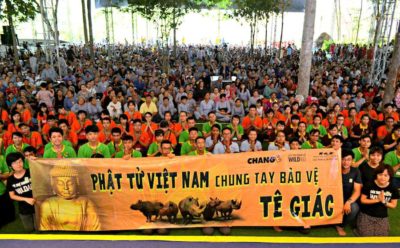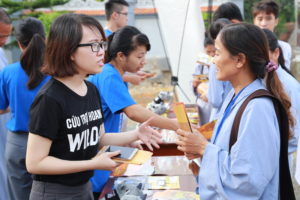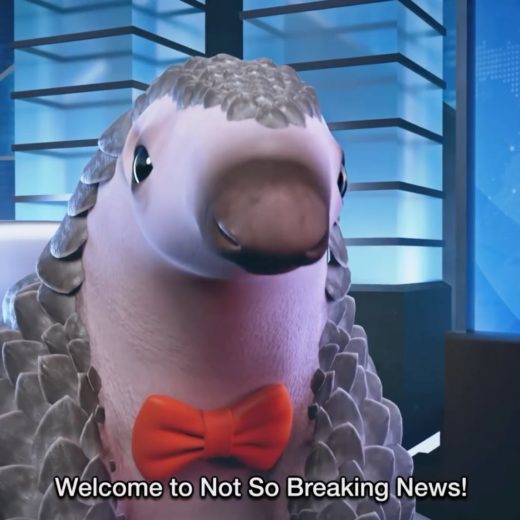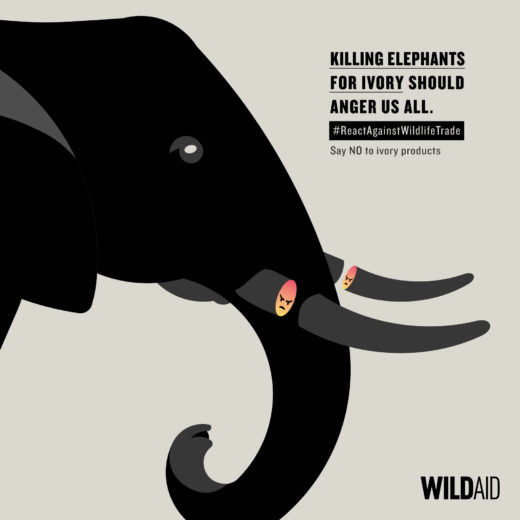
BY TRẦN TÙNG, WILDAID VIETNAM
Though banned for over 20 years as traditional medicine in China, rhino horn consumption has recently surged in countries such as Vietnam, where horn powder is marketed as a “cancer cure” to desperate patients who lack access to adequate medical care. It’s also used as a non-traditional “recreational drug” and hangover cure. Despite these new uses, rhino horn has no unique medical properties and is primarily composed of keratin, the same protein found in human hair and fingernails.
“Say No to Rhino Horn,” a three-year project of WildAid, African Wildlife Foundation and the Vietnamese nonprofit organization CHANGE, is working to dispel widespread myths of rhino horn’s potency by partnering with influential celebrities, entrepreneurs, media partners and religious leaders.


Over the past few months, our Vietnam team organized a nationwide effort to build support among Buddhist communities in speaking out against rhino horn trafficking and consumption. Supported by some of Vietnam’s most-respected monks, the campaign has attracted over 14,000 Buddhists across Vietnam, and has been featured on dozens of Buddhist popular media channels such as Giac Ngo (Buddhist Enlightenment) newspaper and Hoang Phap pagoda website.
Opening the project in May, the Venerable Thich Vien Giac, Abbot of Tu Tan Pagoda in Ho Chi Minh City, spoke before 1,000 Buddhists about the problem of rhino horn consumption in Vietnam and urged Buddhist followers to share with their families, friends and relatives the truth about this illegal trade.
At another recent event, the Venerable Thich Nhat Tu beautifully distilled our campaign message to the Buddhist attendees:
The art of living is to maintain balance between mind and body, harmony between human and nature, showing love for animals, practicing altruism, showing compassion and calmness no matter what happen in life. In essence, rhino horns are composed of keratin like human fingernails and hair. Rhino horns cannot cure diseases such as cancer as rumored. We should be cautious of what others tell you. Do not contribute to the genocide of this species. It would help to bring blessings to us and future generations.
Changing hearts and minds in Vietnam about rhino horn use is crucial to ending the rhino poaching crisis thousands of miles away: Last year, 1,175 rhinos were killed for their horn in South Africa — predominantly in Kruger National Park on the Mozambican border. Though this represents a slight decline in poaching compared to 2014, few middlemen or rhino horn traders have been convicted, suggesting a continued lack of political will in tackling this crisis.
More information on WildAid’s work to save rhinos:
• WildAid Launches South Africa Campaign to Save Rhinos
• Educating Cancer Patients On Rhino Horn ‘Cure’
Stay in touch and get the latest WildAid updates.
SIGN UP


